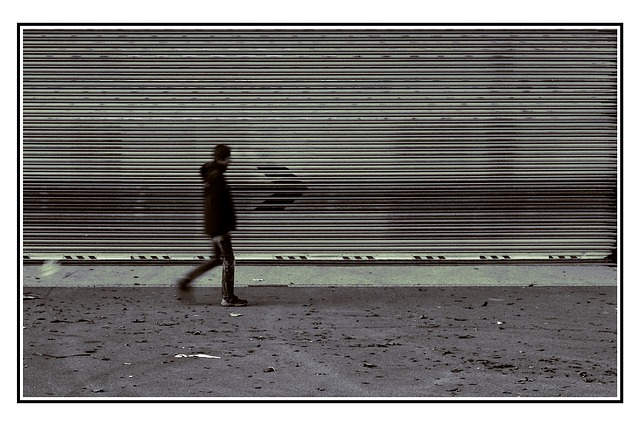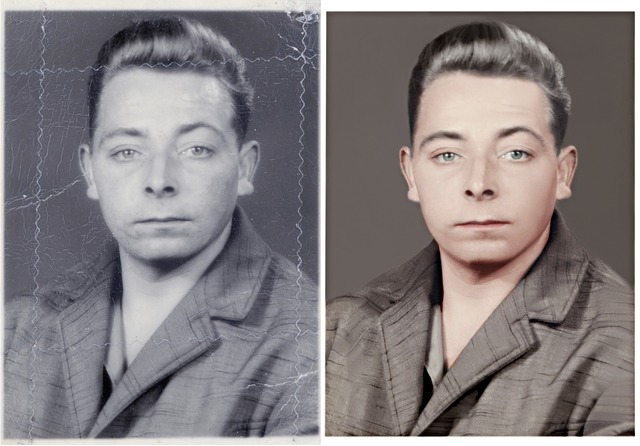When another human leaves your heart in an billion pieces,
people get it.
Friends are happy to help fuel a nice big bonfire, mostly with the ex’s photos. Family members reveal everything they didn’t like about the person to begin with. “You can find much better,” they assure you.
But when writing breaks your heart, it’s a little different. People don’t really understand. Not like they don’t try. But often, a writer with a broken heart is a writer alone.
What to do?
There’s always the six-pack of beer, bottle of whiskey, or a half-gallon of ice cream, but as this site is all about writing and “wellness,” I’m hoping some other choices will be more helpful.
1. You got a form rejection.
You sent out your best work, and they’re not interested.
Your friends say, “Cheer up! Just send it out again.”
This is good advice, but once you’ve collected ten or more rejections, you’re probably entering broken heart territory, and “sending it back out” feels like the last thing you want to do.
Try instead
Wallow in your negative feelings. Blow them up big. “Nobody likes me! I’ll never be a published author! It’s never going to happen!” Throw yourself the biggest pity party you can imagine. Don’t hold back. It really does suck. Being a writer is hard. Facing 10 or 20 or 100 closed doors is enough to shake anyone’s belief in themselves. You really should just give up. Do it. Give up. Don’t send anything more out. You’re just embarrassing yourself. Honestly.
 Keep it up at a high pitch until something inside you snaps. Something that says, “I am going to get published, dammit! And I’m not going to quit!” When that happens, print your story out, let it sit for at least two more days, and then read it again with a fresh eye. Fix what needs fixing and send it back out.
Keep it up at a high pitch until something inside you snaps. Something that says, “I am going to get published, dammit! And I’m not going to quit!” When that happens, print your story out, let it sit for at least two more days, and then read it again with a fresh eye. Fix what needs fixing and send it back out.
If nothing snaps, continue with the pity party until it does—or until you do quit for good. If that happens, it’s all right. Trust yourself that the desire will return if and when it’s right.
2. Your novel isn’t working.
You’ve put months, maybe years into it, and it’s not happening. Something is just not right. You’ve come at it from a number of different angles, but there’s something missing, out of place, or just totally messed up.
“Just keep going,” your friends say. “It will all work out.”
Good advice, but if you’ve been doing that for a while and you’ve waded into the dark forest of near-writer’s block, blindly continuing on may not be the best course of action. Especially if you’re ready to take the chill off by burning the pages of your unfinished manuscript.
 Try instead
Try instead
Make an appointment with yourself to get away, for at least a day—longer, if possible. Treat this like a real broken heart. The project you’ve loved feels like it’s dying inside you. Go to one of your favorite locations and stay for the weekend. If money is tight, make it the next town over. The important thing is to go alone, and keep your schedule open. Spend your time walking, window-shopping, and eating at new places. Let yourself go into that inner sanctuary where the story came from in the first place.
Treat yourself. Get some chocolates, flowers, a new outfit or gadget or writing tablet—anything that makes you feel happy. Don’t write on the story. Just let it sit in your mind. Imagine the characters with you in your new location. Try not to think about plot. Just reconnect to the soul of the novel you wanted to write. Doodle on your new writing pad. Enjoy a glass of wine.
The important thing is to allow yourself to just “be.” Take the busyness out of your life. Leave the work behind for a few days. Grieve, if it feels like the story is dead. You may find that by allowing yourself to truly feel all of the conflicting feelings you have surrounding the work, the answer will gradually come to light—either what you need to do to get going again, or that you have lost the desire to continue. The important thing is to find peace with either approach, and return with your broken heart stitched back together.
3. You got a bad review (or more than one).
Is there anything worse?
You overcame every hurdle to get your work published, and now, here come the criticisms.
You knew they were possible, but you weren’t prepared for how they would make you feel. How they would bring back to life all the demons you thought you’d killed—self-doubt, despair, the voice that says you were never meant to be a writer in the first place.
How they would break your heart.
“Ignore them,” your friends say. “Everyone gets them. Keep a stiff upper lip.”
Good advice. They all say that a writer needs to have a thick skin.
But if you had one, you wouldn’t be a good writer. After all, aren’t we writers because we feel things so keenly? Because they affect us deeply enough we have to write about them?
Try instead
Get a piece of paper and a pen. Write at the top of the paper the name of someone you love. Someone you adore. Underneath the name, create two columns. On the left, write everything you admire about the person.
For the right side, imagine how someone else would see this person if they didn’t like them. What would they find to criticize? Write down everything you can think of. Step outside yourself. Find everything you can that could be considered a “fault” in the person you love.
 Once you’ve finished, look at both columns. Realize it wouldn’t matter if you were talking about Mother Theresa or Gandhi—someone would find something to criticize.
Once you’ve finished, look at both columns. Realize it wouldn’t matter if you were talking about Mother Theresa or Gandhi—someone would find something to criticize.
It’s much easier to criticize than create.
Ask yourself: Does the list of faults/criticisms make you feel any differently about the person you adore?
If not, why should some stranger’s opinion of your work make you feel any differently about it?
The magical thing about writing is we can all improve, forever. We’ll never be perfect, which gives us something to keep working toward. Critics remind us of this fact.
Now ask yourself: Would you continue to associate with someone who criticized the person you adore?
It would make just as much sense to dwell on that negative review.
Stay loyal to your writing. You’ve been through a lot together. Long after that reviewer has forgotten all about your book, you and your writing will still be creating new stories—as long as you remember who’s really there for you. And it’s not the ones who criticize.
Billy Joel sang about it (music instead of writing, but it’s the same thing, right?):
When I’m blue
When I’m lonely
She comes through
She’s the only one who can
My baby grand
Is all I need
 4. No one shows up at the book signing.
4. No one shows up at the book signing.
Talk about humiliating.
Doesn’t matter that it’s happened to most writers. Doesn’t matter that even the giants can walk into a bookstore to read and get only a handful of listeners.
What does matter is that it can be heart breaking.
“Don’t worry about it,” your friends say. “It was probably just a bad night.”
They’re probably right, but you’re still tempted to cancel every other signing you had planned.
Try instead
First, find a way to salvage the time. Grab a great new book to read, connect with a staff member, or take yourself somewhere completely different for a nice lunch or dinner. Do something immediately to help yourself feel better.
Once you’ve gotten over the hump, it’s time to take action. Turn the tables in your imagination. Would you have come to your signing? Why or why not? What about a friend of yours? Pick one who’s usually quite busy, and wouldn’t normally attend a book signing. What might have compelled her to go?
Maybe you can do more. Advertise in more places. Expand the signing to be a presentation instead. Join with other writers to make it a larger event. Choose a different venue (other than a bookstore).
Or, forget about the signings and focus your efforts online instead.
Get excited about the new possibilities, and let the healing begin.
“Did I wish everyone would have lined up to buy my book?” writes leadership coach Jevonnah Ellison. “Of course!! But when I saw some people marching right past me, a truth hit me that I had mentally embraced before, but this time sank deep down to my core and will help me forever: It’s OK that my message isn’t for everyone. It’s not a sign of rejection—it just means I’m not ‘assigned’ to them.”
5. Your book doesn’t sell.
Whether this means your manuscript is never picked up by a publisher, or that sales are disappointing after publication, this one’s going to take some time.
First, realize that you are certainly not alone.
“It doesn’t matter how you publish, most books don’t sell very well,” writes author Hugh C. Howey. “Don’t think you’re doing something wrong or that you aren’t successful if your book isn’t keeping up with your neighbor’s.”
“It’s heartbreaking,” writes agent Rachelle Gardner, “because the book deserves to be read by many, many people. But it’s not just emotional, it’s a business failure, too. It’s many, many hours spent with no return.”
All well and good. Writers know this going in. All that time may result in nothing more than pages in the drawer. Even after a publishing contract, the book(s) may make fast tracks to the remainder tables. Understood.
But what to do about the broken heart?
Writer R. L. Saunders describes the feeling as a “devastating blow to my career, ego, and ability to carry on and oh my god it hurts I can’t breathe make it stop I’ll never write again my life is over what’s the point my work is a joke and not even a good joke kill me now….”
 Try This
Try This
Take a walk. Take a very long walk.
Allow all those horrendous feelings to flow through you. You need to feel them before you can let go of them.
When you’ve walked some of them out, ask yourself one question.
Is the lack of sales enough to make you want to quit writing?
Your head may scream “yes!” It’s okay. Indulge the thought. Sometimes the idea of quitting feels delicious.
But it’s the little feeling in the center of yourself that’s telling you the truth. Indulge your fantasies, but listen to that feeling. What is it telling you?
“The thing that had drawn me to writing in the first place,” says Allison Vesterfelt, “the thing that compelled me to write, even when I had other jobs, even when I barely had the time, even before I had ever entertained the idea of publishing—didn’t have anything to do with fame or money or the number of copies I sold. The reason I started writing and the reason I wanted to keep writing was because writing had saved me, it had healed me, it had helped me uncover meaning in my life. No matter how many copies I sold or didn’t sell, no matter how much money I made or didn’t make as a writer—for me, writing would always do that.”
If you feel the same, have yourself a delicate chocolate, and then let your heart revel in the fact that you’ve got something nothing can ever take away from you.
Your writing.
What may very well be…the love of your life.



That RL Saunders quote is EXACTLY what rejection of your writing feels like. A teacher once told me in English class that writing something is putting your soul on paper for people to judge, and it’s a vulnerability like nothing else. I thought I was prepared for the possible pain of that rejection, but I wasn’t. These are great tips for getting past that broken heart!
Sounds like your teacher may have had experience with rejection? Hope the tips help!